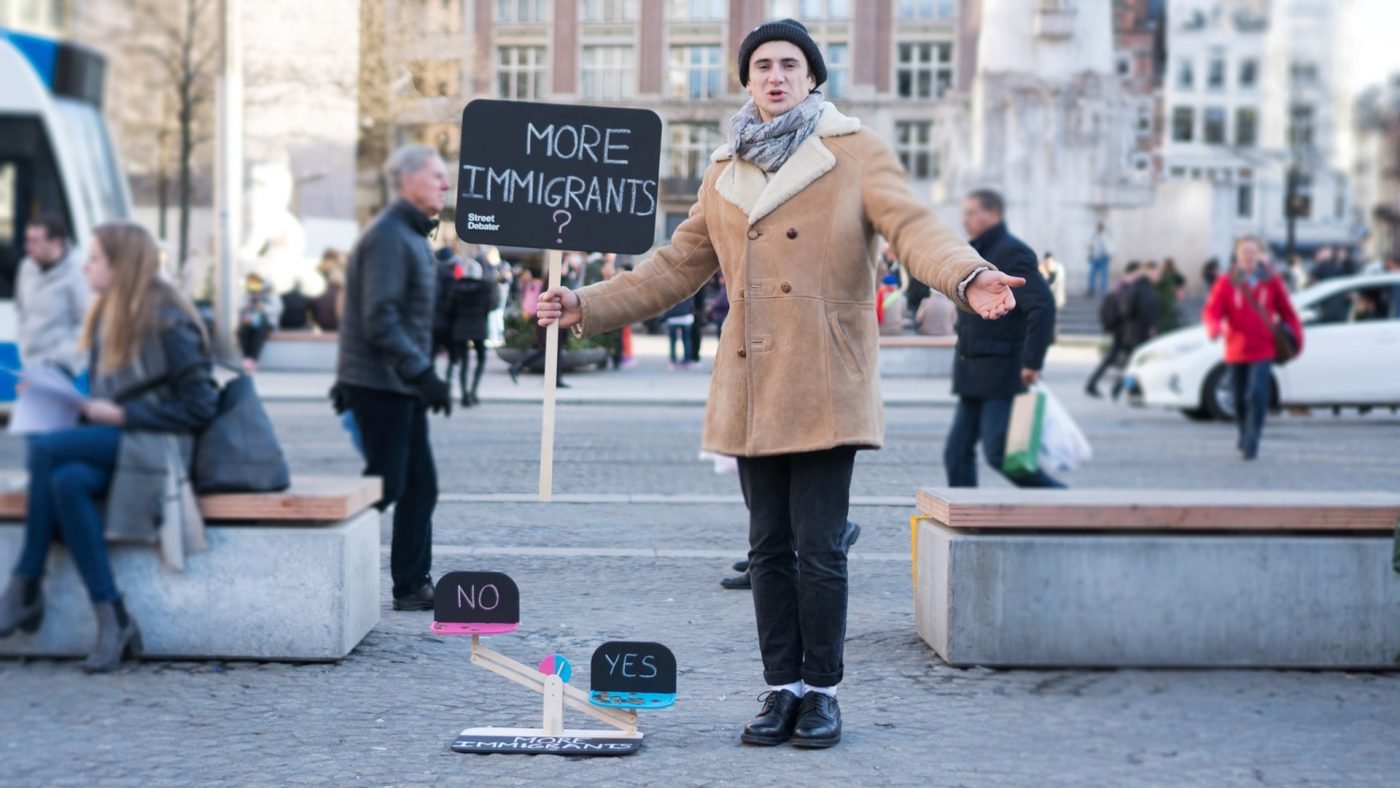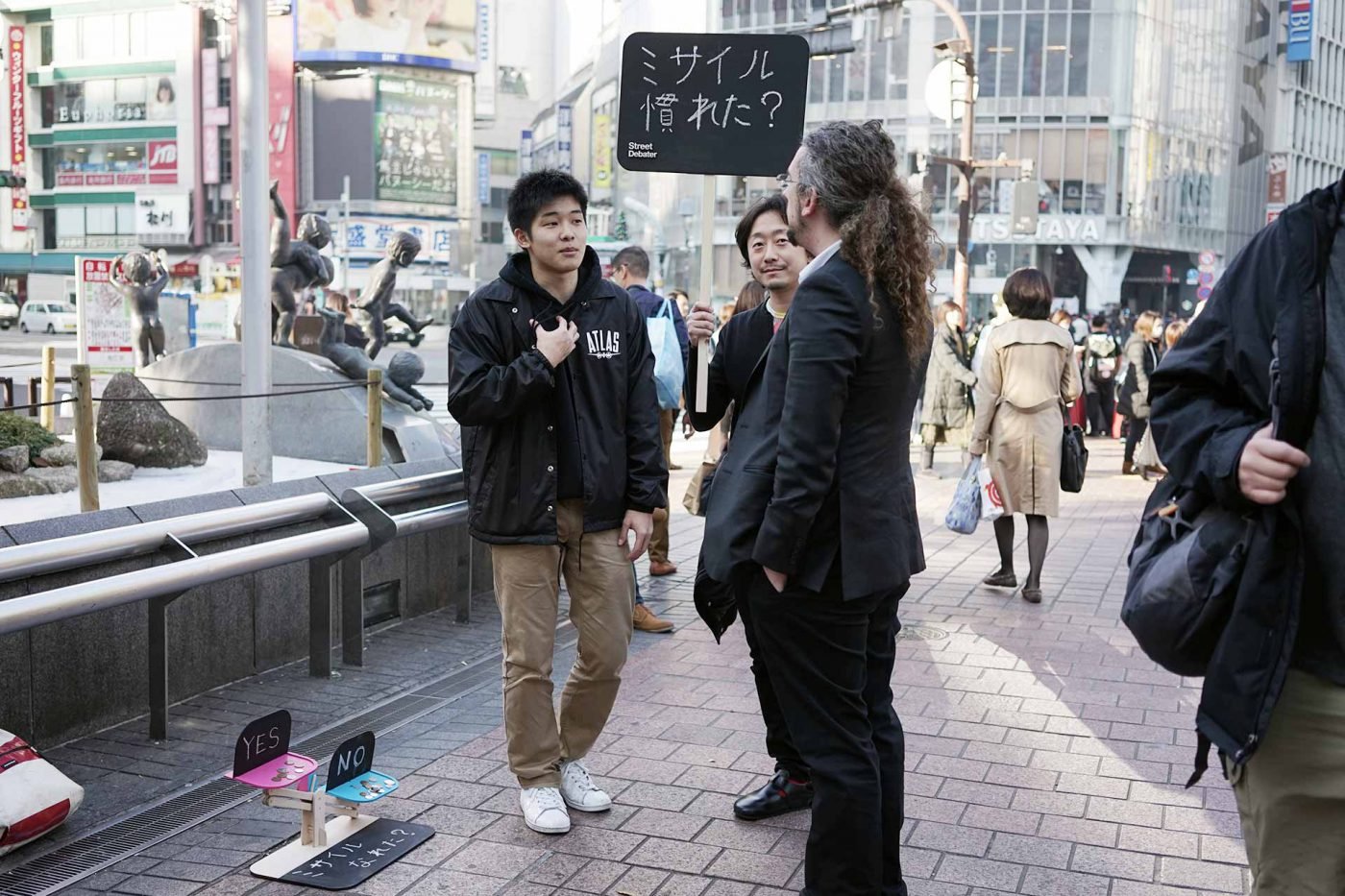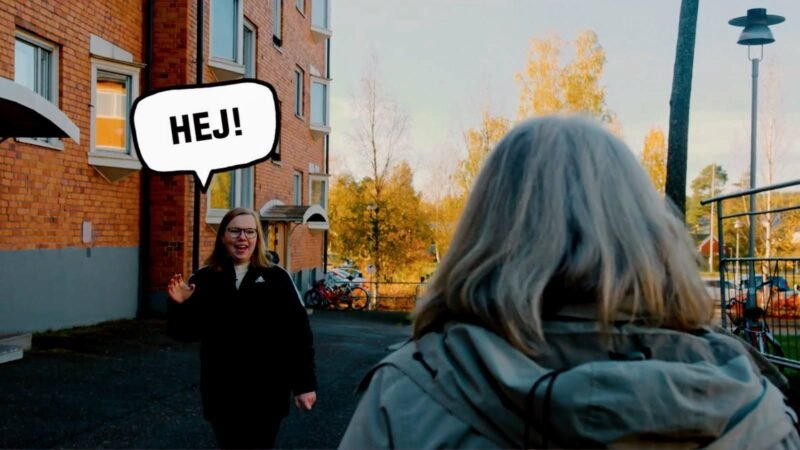Street Debater Promotes Conversations Between Urbanites

Japanese design student Tomo Kihara developed a playful tool called Street Debater, which allows the homeless to earn money without cashing out on their dignity. It also functions as a conversation starter for urbanites that might otherwise forget to talk to others.
Consisting of a set of scales, that pose a twofold question, people are invited to vote. Participants vote on a set issue by putting a coin on their preferred answer. But this intervention is not just about ‘re-inventing’ begging. It works as a conversation starter with the people who normally don’t have a voice in society or who might be too busy to slow down and talk to other urbanites. Kihara had noted that genuine verbal interactions are usually the key to happiness and social change. With the Street Debater he wanted to address the bigger problems of social segregation and loneliness that are becoming pressing issues in many big cities.

The idea of the Street Debater was born in Europe. After moving from Japan to the Netherlands, Haraki noticed the large amount of homeless people in European cities. He felt like a playful intervention was crucial. As a part of his research into the issue of homelessness, Kihara spent time with a CD vendor, who turned out to be homeless. Although he earned less money selling CDs, by doing so he felt like he was able to retain his dignity. Inspired by him, Haraki started to develop a concept that would stimulate the feeling of curiosity among pedestrians. After experimenting with different ideas, asking a multiple-choice question turned out to work well. On average, street debating earns £13.5 per hour and stops 12.5 people for a friendly chat.

The design is now developed into a open-source format in order to make it more accessible to the wider public. Although Kihara is realistic about its impact on homelessness, he hopes that his project will address, and mitigate the problem, bridging the gap between different levels of urban society. His next aspiration is to transform the concept into political activism tool that encourages people to discuss important issues with those outside of their ‘social-media bubble’.

Addressing social issues by turning them into interactive games has been used as an approach in a variety of contexts such as voting with cigarette buds, keeping pedestrians entertained while waiting in traffic lights and turning staircases into a playable piano. The ‘Fun Theory’, originally endorsed by Volkswagen, shows that you can have a positive influence on peoples behavior by making the experience more interactive, or in other words, more fun.



